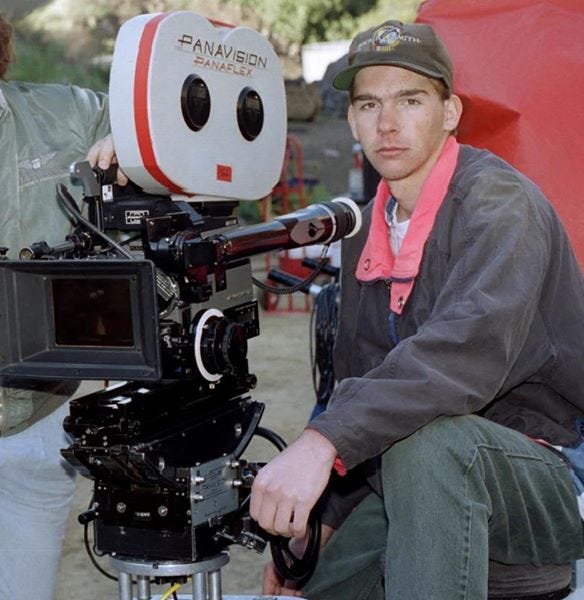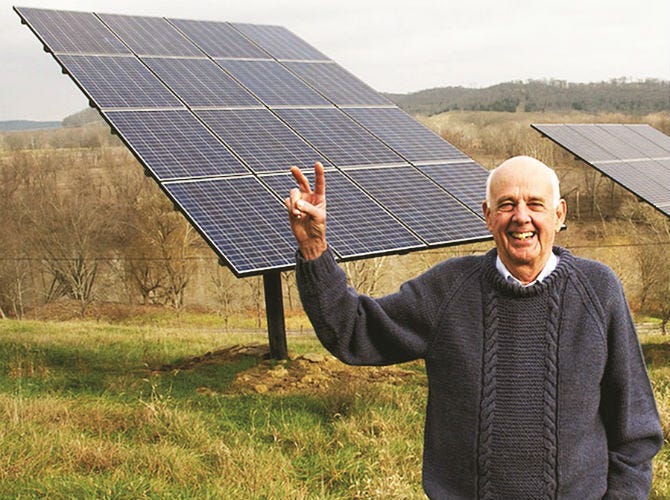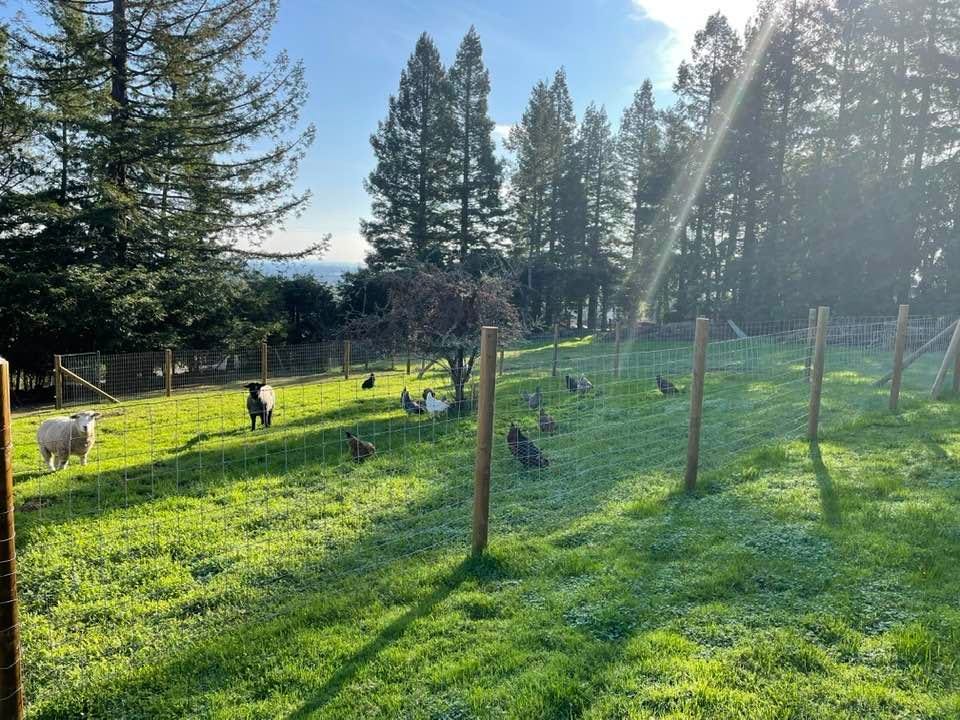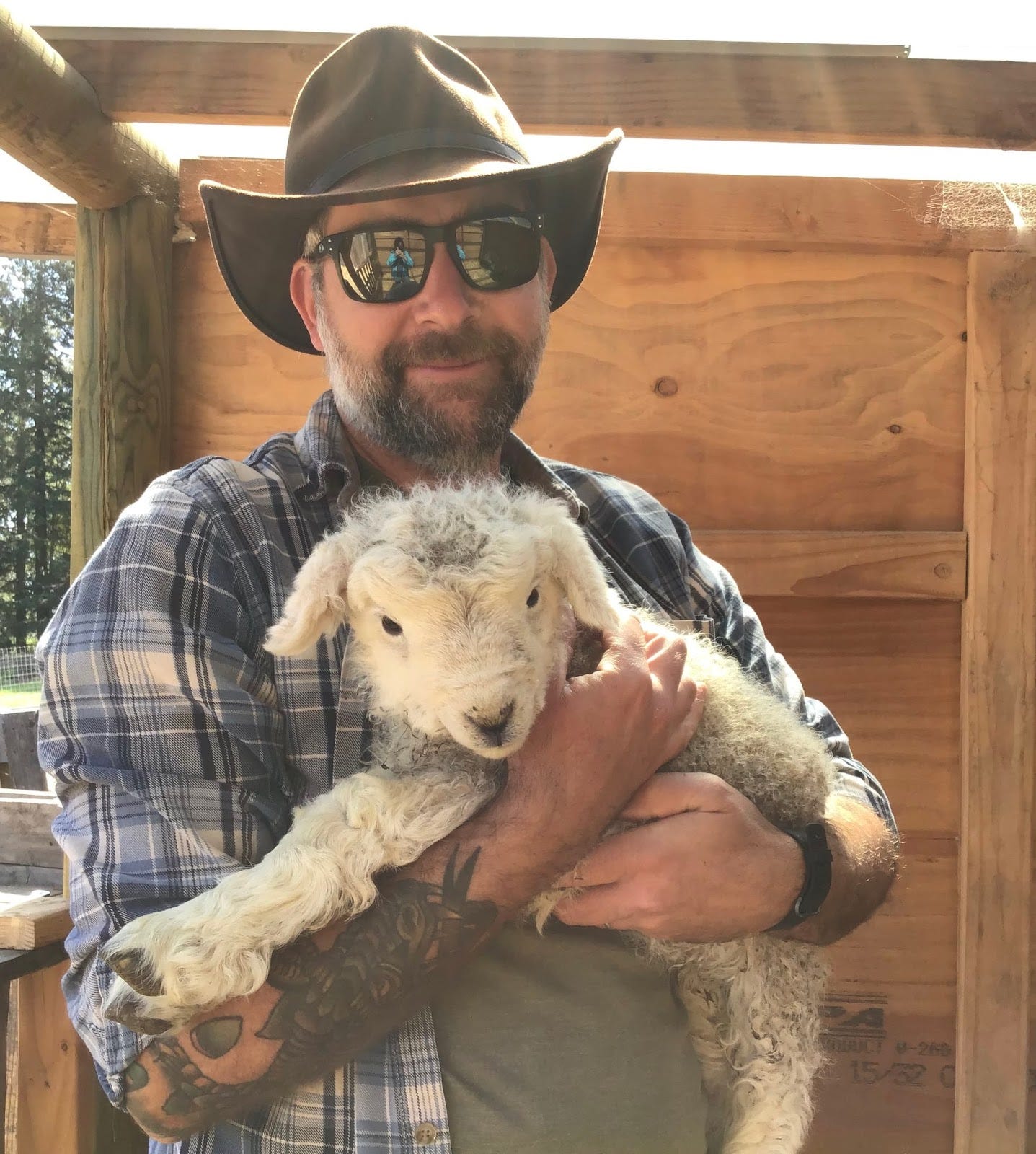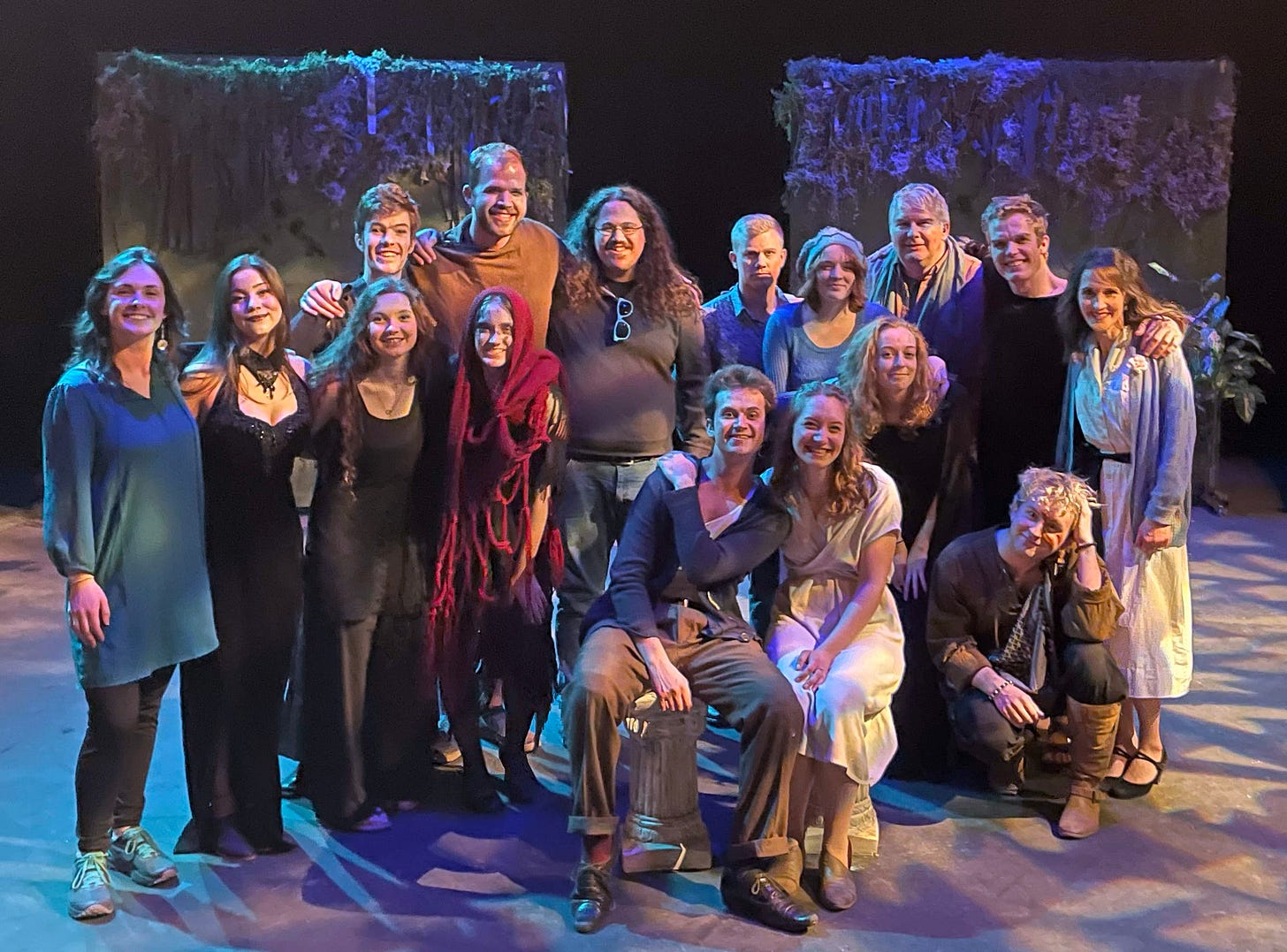Dear Reader,
As I mentioned in last Friday’s newsletter, after 60 straight weeks of writing Second Drafts, I took a break this week to focus on playing the role of Grandfather in Orpheus Ascending this weekend. In my absence, I asked friend and fellow pilgrim, Jake Aharonian, to write a guest feature, and he knocked it out of the park (as I knew he would). I hope you enjoy it.
In response to last week’s feature on Christianity Today self-reporting on sexual harassment (and the problem with sexual harassment in general), I received this email from a reader:
“I’m going to offer my guess as to why this problem of sexual sin within our Christian institutions is occurring so often. I feel much of the blame falls on broad acceptance of artificial birth control both from churches and from parishioners. What seemed like such an amazing idea to free women from their natural God-given fertility so they could be more free to work or enjoy the physical act of marriage without the consequence of a child.
This certainly applies to men also. With the removal of the consequence of children for men, they quit looking at their wives as something to be treasured and turned them into an object that could now be ‘open for business’ any day of the month. This could also apply to premarital relationships where respecting the girl you were courting and looking forward to marrying and being intimate with could now simply be viewed as on opportunity to ‘getting the milk for free without buying the cow.’
Factor in the secular world embracing this even more than Christians and we have the place we are at now. For time’s sake, I will spare you the diatribe about the prevalence of abortion, even amongst Christians, that yielded similar results as the Pill. When Christians submitted to these secular ills, we gained perceived power, then corruption, etc.”
I don’t disagree with the significance the reader attributes to birth control; fifty years after the fact, most of us can’t imagine the cultural shift that must have been then and even since. While the milk/cow analogy is familiar and perhaps not as nuanced as some may like, it gets at the mentality of getting something with no moral obligation to or for it, which as I suggested in last week’s newsletter is at the heart of harassment. The issue is not (just) sex, but power.
I always enjoy hearing from my readers. As always, thanks for reading and writing to tell me so. Enjoy this week’s Second Drafts (and thanks again, Jake, for giving me a break).
Craig
P.S.: As a reminder, you’re welcome and encouraged to email me directly with feedback, ideas, links, etc. at cmdunham [at] gmail [dot] com. Just know that, unless you specifically tell me not to, I may quote you here (though it will always be anonymously).
Hot Takes
Due to time and space limitations, there are no Hot Takes for this week.
The Art of Divine Enchantment
Jake Aharonian and I first met in St. Louis when our family (having been in seminary for a few years and “more seasoned” with four kids in a house we owned off campus) was asked to host dinner for new, young seminarians on behalf of Covenant Seminary. Providentially, Jake and his wife, Kristin, were two of the assigned guests on our list, and we’ve been friends and each others’ biggest fans ever since.
Jakes teaches College Composition as well as Advanced Composition and Critical Thinking at Santa Rosa Junior College. I know you’ll appreciate his words of wisdom here in Second Drafts.

“The Lord is my chosen portion and my cup;
you hold my lot.
The lines have fallen for me in pleasant places;
indeed, I have a beautiful inheritance.” Psalm 16:5-6
When I was ten years old, I wanted to pitch for the Los Angeles Dodgers.
Actually, that’s not entirely true. When I was ten years old, I wanted to be Orel Hershiser, arguably the best pitcher the Dodgers have ever had. I spent countless hours throwing a ball to a pitch-back; countless hours copying Orel’s stance on the mound (even the way he held his glove); countless hours perfecting my “game face,” all to emulate the man I wanted to be.
Some of that emulation paid off. I was a pretty decent pitcher in Little League. I threw a couple shut-out games. I could throw a mean change-up.
And then…I discovered Steven Spielberg.
When I was fifteen years old, I wanted to be the next Steven Spielberg. I read countless biographies on him; I copied (on my old-school VHS camcorder) his signature shots (side-view mirror shot, silhouette medium shot, extreme close-up eye shot). I even bought a cowboy hat and big sunglasses so I could look like he did on the set of Close Encounters. And I made some (to my young mind) decent films. I ended up enrolling in film school in Los Angeles. I hung around Paramount Studios a lot.
And then…I found something else.
Lewis & Enchantment
In 1946, C.S. Lewis published an essay entitled, “Talking About Bicycles.” In it, he argues that there are four stages of enchantment humans experience:
un-enchantment—when an experience, idea, or person is unknown to us;
enchantment—when we are acquainted with the thing (or idea, or person) for the first time and it touches our heart;
disenchantment—when the novelty wears off;
and re-enchantment—when, through various means, we are drawn, inexplicably and more fully, to our first love of the thing
Lewis applies this to a love for riding bicycles, but it is easily relatable to almost anything that delights our heart.
My life, like many of yours I’d imagine, has been full of this continual movement from one interest to the next—always fully invested at the moment, but flung aside at the introduction of a new activity, idea, or dream—un-enchantment giving way to enchantment, only to stop there and go no further. I’ve been thinking about this back and forth a lot lately, wondering, why do some enchantments stick and not others?
I think it has to do with the nature of the enchantment. My early ones (Steven Spielberg and baseball), were enchantments of vocation tied to glory—I didn’t just want to make movies; I wanted to win Oscars and be rich (I even named the yacht I was going to buy—Proudly Presents). I didn’t just want to play baseball; I wanted to beat records and win the World Series.
Every iteration of the enchantments in my mind centered around…myself. This isn’t entirely unusual, I know; it’s a rare kid who is able to dream big and not write themselves as the hero of their own story. But at the end of the day, I don’t think our souls are strong enough (or made) to sustain enchantments that place us at the center.
Which is why I’m so glad I became enchanted with Wendell Berry.
True Enchantment
Twelve years ago, my wife and I were were blessed with an opportunity to build our house on the same property on which she grew up in rural Sonoma County, California. Wendell Berry had a lot to do with that decision.
I had recently been introduced to Berry’s writings, and was immediately enchanted with his worldview—community tied to place with a generational viewpoint that looked behind as much as it looked ahead. When the time came to decide whether to move to the hill and build our home on my wife’s family property, I thought, of course we need to build our home on the same property my wife grew up on; of course we need to raise our children in community with their immediate family; of course we need to view this land through a generational lens, and find ways to fashion it appropriately while it in turn fashions us.
One of Berry’s essays I frequently assign in my freshman composition classes is “The Work of Local Culture.” In it, Berry uses the metaphor of an old bucket collecting leaves and other detritus, turning them into useful soil. This, he argues, is a portrait of how our human relationship with the world and each other ought to be. He writes,
“…a human community…must collect leaves and stories, and turn them into account. It must build soil, and build that memory of itself—in lore and story and song—that will be its culture. These two kinds of accumulation, of local soil and local culture, are intimately related.”
This was a very different enchantment than pitching or film making; rather, this enchantment has led, in the twelve years we’ve lived here, to a deepening affection for—and reliance upon—the land on which we live. It’s led to an appreciation for the rhythms of life on the hill—the anticipation of seasons (well, as many as we have in California which, if I’m honest, is two at the most); the calculus of caring for our plants and animals in a meaningful way; the encouragement to our three children of contributing to the work necessary on our little farm. It’s led to a love of shepherding (something I never thought I’d do).
Berry forced me to re-think my focus on enchantment, at least in the way that C.S. Lewis described it. True enchantments are signifiers. Like courtly love for a knight, or a call to Devil’s Tower, true enchantments are conduits by which we can rightly worship and be drawn to God.
For me, my enchantments with baseball and film making were too small and selfish to hold up eternally. My current enchantment with shepherding and the worldview of Wendell Berry, however, demands something of me. It is sacrificial at its core. It requires a long view of a particular place and a small view of myself. This type of enchantment is the one that will last—through the inevitable disenchantment to a sure re-enchantment.
Awaiting the Re-Enchantment
The weird thing is, I’m not sure which stage of the enchantment process I’m currently in—with farm animals, “husbandry,” and different lives to tend to. I often feel as if I’m still glowing from the spiritual calling of the work to be done—enchantment leading to action which leads to settled progress. Other times, I feel as if I’m firmly in the dis-enchantment of not feeling good enough, not knowing enough, not prepared enough to adequately handle the weight of the lives on this hill that depend on me (including wife, children, and farm animals). Like Tristan Farnon in All Creatures Great & Small (please watch if you haven’t already!), I often feel a fraud and phony in the enchantments I’ve been living, wishing desperately to be taken seriously, but knowing deep down that there are major deficits in my knowledge and ability.

However, at the end of the day, I trust that the enchantments the Lord has given lately (settled life, Wendell Berry, sheep) will continually point to Him and allow me to work through the coming dis-enchantments, as well as welcome with gladness the final re-enchantment. My (small) vision is summed up nicely by Berry when he writes:
“The old shepherd comes to another lambing time, and he gives thanks. He has longed ever more strongly as the weeks and months went by for the new lives the ewes have carried in their bellies through the winter cold. Now in gray early mornings of barely spring he goes to see at last what the night has revealed. Through many of its generations he has husbanded his flock, keeping every year a few promising ewe lambs to replace the old that die and those that fail, are culled, and sold. Some of any year’s crop will be better than the rest, some will be outstanding. The best he remembers from the time, as sucklings, they caught his eye. Lineages of motherhood having stayed unbroken through many years, his flock has improved, somewhat by his choosing, no doubt, but more as the farm itself has chosen them for their thriving in it, on its terms, and so they are its own. They belong by adapting to the place as the shepherd wishes to belong.”
May it come quickly.
Playing This Weekend: Orpheus Ascending
We had the premiere last night of Orpheus Ascending, and it was a joy after eight weeks of rehearsing to play to an audience! Here’s the press release I wrote for the show:
“It’s not every day an audience gets the chance for a guided tour through the Underworld, but that’s the opportunity Montana State University senior, Elsa Wintersteen, is offering in her original play, Orpheus Ascending, playing this Thursday-Sunday, March 24-27, at The Blackbox Theatre.
Set to graduate this May with a double degree in Literature and Directed Interdisciplinary Studies, Wintersteen spent four years thinking about and writing the show, which also serves as her senior capstone, before its premier this weekend.
‘Ovid, in his Metamorphoses, includes the story of Orpheus and Eurydice, which is the first place in classical literature where we have the full story, but we’re pretty sure the legend is much older than that,’ says Wintersteen. ‘Orpheus descending into the Underworld to save Eurydice, his wife, is an old myth type that shows up in various forms in almost every culture around the globe, including Native American culture.’
Retelling the story and rooting for Orpheus and Eurydice is part of the tale’s appeal, said Wintersteen, even despite its historically unsatisfying ending.
‘Probably seventy percent of the time, the story ends the same way, with Orpheus failing to bring back his loved one from the dead,’ said Wintersteen. ‘This is how Ovid ends his tale, but for me, I wanted to look at how Orpheus might break the myth cycle that he and Eurydice have been trapped in across the millennia. Clearly, Orpheus by himself doesn’t have the ability to make the story end a different way, so I explored how I could make it end differently for them.’
That exploration became Wintersteen’s epic three-hour play set in pre-World War I Greece. Eurydice lives with her mother, Maia, and adopted Grandfather. In the first act, the trio run a flower shop and make the acquaintance of Orpheus and his band of troubadours, Hector and Euterpe.
What transpires in the play’s second act is the kidnapping of Eurydice by Charon, ferryman of the river Styx , to become the bride of Hades, Lord of the Underworld. A spiritual tug-of-war ensues between the forces of Hades, the Fates, and Orpheus as he attempts to retrieve his bride, culminating in the show’s third and final act’s surprise twist.
In addition to writing the script, Wintersteen penned several songs and accompanying lyrics for the show, all of which play an important part in moving the plot along. And, as part of the requirements for her Directed Interdisciplinary Studies degree, she also coordinated (with help from her husband and other volunteers) all aspects of the show’s funding, production, promotion, and ticket sales. While she said she enjoyed all the behind-the-scenes work, none of those responsibilities compared to the joy of directing the actors on stage.
‘The actors in the show are stellar,”said Wintersteen, “and I couldn’t have asked for a more talented and committed group of people to bring my version of the Orpheus tale to life.”
Orpheus Ascending runs March 24-27 (Thursday, Friday, and Saturday nights from 7:30-10:30 p.m., with matinees on Saturday and Sundays from 2-5 p.m.). Tickets are $15 and may be purchased at www.orpheusascending.com or at the door (though The Blackbox only seats 150, so seating is limited).
Want to learn even more? Listen to the podcast I recorded last weekend with Elsa.
Fresh & Random Linkage
“What’s Inside ‘Everyone Wins’ Nominees Gift Bag: From Liposuction Treatments to Scottish Castle Stay” - Just more reason to loathe award ceremonies and those who cater to and participate in them. Sheesh.
“The Power of the Squat” - I confess that I remain unconvinced.
Until next time.






